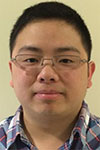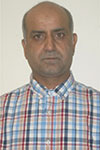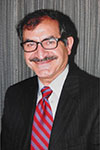Design and optimisation of multi-stage hydraulic fracturing in a horizontal well in a shale gas reservoir in the Cooper Basin, South Australia
Kunakorn Pokalai A , Yang Fei A , Maqsood Ahmad A , Manouchehr Haghighi A and Mary Gonzalez AThe University of Adelaide
The APPEA Journal 55(1) 1-14 https://doi.org/10.1071/AJ14001
Published: 2015
Abstract
Multi-stage hydraulic fracturing in horizontal wells is a well-known technology and is a key mechanism for gas recovery from extremely low permeable shale gas reservoirs. Since Australia’s Cooper Basin has a more complex stress regime and higher temperatures when compared to US shale gas formations, the design and optimisation of this technology in the Cooper Basin has not been explored to the authors’ knowledge.
The Murteree and Roseneath shale formations in the Cooper Basin are 8,500 ft in depth and have been targets for shale gas production by different oil and gas operators. Deeper zones are difficult to fracture, as fracture gradients are often above 1 psi/ft.
In this study, 1D vertical mechanical earth modelling using petrophysical log data was developed. Then, the stress profile was tuned and validated using the minimum horizontal stress from a mini-frac test taken along a vertical well. A 3D hydraulic fracture simulation in a vertical well as developed as a pilot to select the best locations for horizontal drilling. The selection criteria for the best location included the stress regime, gas flow rate and fracture geometry. Then a multi-stage fracture treatment in a horizontal well was designed.
A large number of cases were simulated based on different well lengths, stage spacing and the number of stages. The productivity index was selected as the objective function for the optimisation process. The best case finally was selected as the optimum multi-stage hydraulic fracturing in a horizontal well in the Cooper Basin.

Kunakorn Pokalai is presently a PhD candidate in petroleum engineering at the University of Adelaide. He has a BEng in petrochemical engineering from Silpakorn University (Thailand), and completed a Graduate Certificate in Management and a Master’s degree in petroleum engineering from the University of Adelaide. Kunakorn’s research interests are in the simulation of unconventional reservoirs and hydraulic fracturing. He mainly focuses on the issue of fracturing fluid flowback in the Cooper Basin. Kunakorn was the recipient of the prestigious American Association of Petroleum Geologists (AAPG) Imperial Barrel Award in the Asia Pacific Region in 2014. Member: Society of Petroleum Engineers (SPE) and AAPG. |

Yang Fei is presently undertaking a PhD in petroleum engineering at the Australian School of Petroleum (ASP). Before starting his PhD, Yang received his BEng (hons) in petroleum engineering from the University of Adelaide. Previously, Yang has worked as a technical assistant at Santos Ltd for three years. Yang’s area of expertise is in production engineering and optimisation, where he focuses on the development and maintenance of GAP/PROSPER/MBAL models of satellites from the Cooper Basin. In addition to that, he was providing support in running various scenarios to identify potential projects to fully optimise satellite performance. Yang’s PhD involves researching waterless hydraulic fracturing alternatives for Australian unconventional reservoirs. Member: SPE, the Petroleum Exploration Society of Australia (PESA) and AAPG. |

Maqsood Ahmad did his PhD in 2014 at ASP. His PhD was titled Petrophysical and mineralogical evaluation of shale gas reservoirs: a Cooper Basin case study. After gaining a post-graduate degree in geology from The University of Punjab (Lahore, Pakistan), Maqsood was appointed as a research assistant for some projects funded by the Pakistan Science Foundation in the Institute of Geology in Lahore. Later, Maqsood acquired his Master of Information Technology and Master of Engineering Science in Petroleum Engineering degrees from the Queensland University of Technology (Brisbane) and University of New South Wales (Sydney) in 2001 and 2010, respectively. Maqsood’s research interests include source rock evaluation for hydrocarbon generation potential and characterisation of source rocks as potential unconventional natural gas reservoirs using conventional and unconventional techniques. After joining the ASP Maqsood has worked in fields such as the enhanced understanding in application of micro and nano CT scanning, FIB/SEM, QEMSCAN, high-pressure gravimeteric analayser for sorption measurements, and application hydraulic fracturing techniques in shale gas, coal seam and tight gas reservoirs. Member: SPE, PESA and AAPG. |

Manouchehr (Manny) Haghighi is an Associate Professor of Petroleum Engineering. His research and teaching focus is on unconventional reservoirs, reservoir simulation, well testing and formation evaluation. Manouchehr has supervised more than 40 MSc and 10 PhD students. Before joining the University of Adelaide in 2009, Manouchehr was an Associate Professor of Petroleum Engineering at the University of Tehran (Iran). During 2000–07 he was the Head of the Petroleum Engineering program at the University of Tehran. In 2000, Manouchehr established Simtech, a consulting company for the integrated reservoir simulation in which he has been Project Director of several full field simulation projects for oil and gas reservoirs. From 1995 to 2000 Manouchehr was working with the National Iranian Oil Company (NIOC) and was the director of a program for the training of NIOC staff at several universities in the US, UK, Canada, France, Australia and Norway. Manouchehr was a visiting professor at the University of Calgary from 2007–08. Manouchehr has published more than 80 articles in peer-reviewed journals and presented in international conferences. He has served as a reviewer for different journals such as the Journal of Petroleum Science and Engineering. Member: SPE. |

Mary Gonzalez is a Lecturer of Petroleum Engineering and the Engineering Honours Academic Coordinator for the ASP. Her research and teaching focus is on reservoir and production engineering, particularly for production enhancement and optimisation. Mary joined the ASP in 2009 after several years of experience in the oil and gas industry, where she provided practical petroleum engineering consultancy services and solutions in the areas of subsurface and production engineering. Mary is a collaborator for APPEA and has a BSc degree and a post graduate degree in petroleum engineering, and post graduate studies in higher education. Member: SPE and PESA. |


